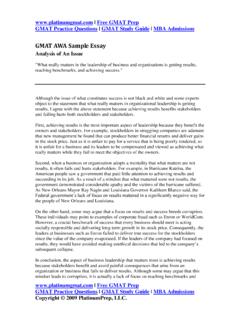

However, the GMAT quantitative section contains more logical mathematical problems, whereas the GRE has more geometry based questions. The mathematical (quantitative) questions on the GMAT exam are generally considered to be more advanced, thus more suited to people with strong math skills. Many people believe GRE is easier overall, but the GMAT is considered easier to study for!īut what on earth does that mean? Let’s break down the GRE vs GMAT difficulty:Įach test has some more difficult sections and some easier sections, so the easiest one for you will depend on your own abilities, strengths and area of confidence. The Verbal and Quantitative sections are scored on a scale of 0-60 in one-point increments, while the Integrated Reasoning is scored on a scale of 1-8 in one-point increments, and the AWA is scored on a scale of 0-6 in half-point increments.

The GMAT, on the other hand, consists of Verbal Reasoning, Quantitative Reasoning, Integrated Reasoning, and Analytical Writing Assessment (AWA) sections. The Quantitative and Verbal sections are scored on a scale of 130-170 in one-point increments, while the AWA is scored on a scale of 0-6 in half-point increments. The GRE includes Verbal Reasoning, Quantitative Reasoning, and Analytical Writing Assessment (AWA) sections.

Here's a breakdown of the test structures for the GRE and GMAT: Strap yourself in for the long haul!Īlso Read: GMAT vs IELTS GMAT vs GRE: Test structure GMAT takes 3 hours and 7 minutes, while GRE takes 3 hours and 45 minutes. Durationīoth tests are pretty lengthy too. GMAT usually costs US$250, while GRE costs US$205. CostĮach can be completed all year round and are valid for 5 years after completion, and they’re pretty similar in price. They’re also both computer adaptive exams, which means that the difficulty of each question adapts to the level of your previous answer -answer strongly and get more difficult questions, leading to a higher overall score. However, GMAT contains an additional section on Integrated Reasoning. Sectionsīoth have sections on Verbal Reasoning, Quantitative Reason, and Analytical Writing.
#GMAT AWA PROFESSIONAL#
As mentioned above, it’s accepted by a lot of business schools for entry into an MBA, but it can also help gain entry onto a host of other graduate and professional programs.

While GMAT is used and accepted by all business schools to decide their admissions, GRE is more versatile. The main difference between GMAT and GRE is usability. AWA is scored on a scale of 0-6 (in half-point increments).Īpproximately 3 hours and 45 minutes, excluding optional breaks.Īpproximately 3 hours and 7 minutes, excluding optional breaks. Integrated Reasoning is scored on a scale of 1-8 (in one-point increments). Verbal and Quantitative sections are scored on a scale of 0-60 (in one-point increments). AWA is scored on a scale of 0-6 (in half-point increments). Verbal and Quantitative sections are scored on a scale of 130-170 (in one-point increments). On-screen calculator is provided for certain questions. Includes math topics with a focus on data sufficiency and problem-solving skills relevant to business and management scenarios.Įmphasizes vocabulary, reading comprehension, sentence equivalence, and text completion.įocuses on critical reasoning, reading comprehension, and sentence correction, all tailored for business-related situations. Verbal Reasoning, Quantitative Reasoning, Integrated Reasoning, and Analytical Writing Assessment (AWA).Ĭovers math topics commonly taught in high school and undergraduate programs. Verbal Reasoning, Quantitative Reasoning, and Analytical Writing Assessment (AWA). Specifically designed for admissions to graduate business programs (MBA programs) worldwide. Difference between GRE and GMAT Overview Aspectįor admissions to various graduate programs in a wide range of fields, including business, social sciences, engineering, and natural sciences. GRE tests a candidate’s ability in three key fields: Verbal Reasoning, Quantitative Reason, and Analytical Writing. While it can be used by international students to gain entry to the majority of (but not all) MBA programmes, it can also be used for admission to a wider range of graduate programmes including a Master’s in Law, Juris Doctor (Doctor of Law) or a Doctoral Degree. GRE stands for Graduate Record Examination.


 0 kommentar(er)
0 kommentar(er)
